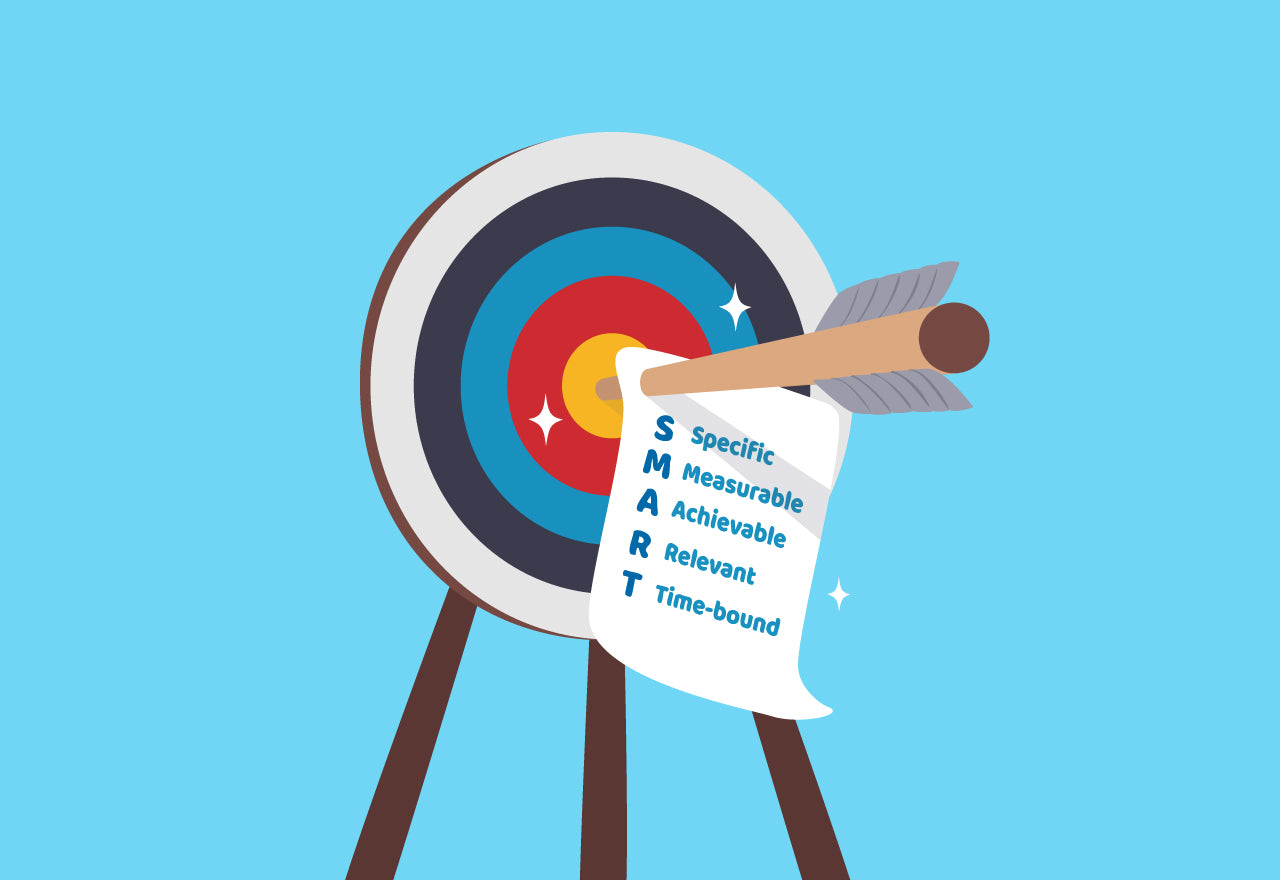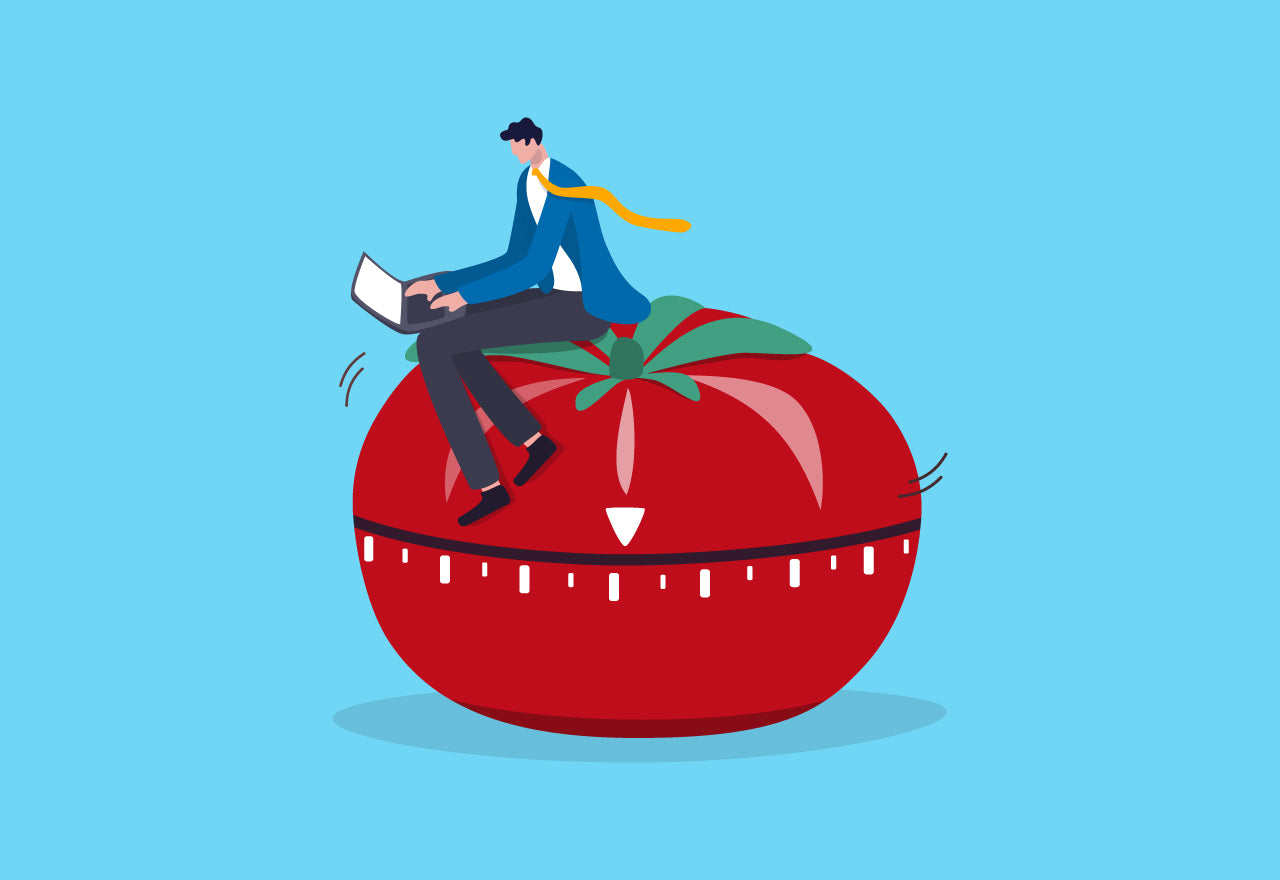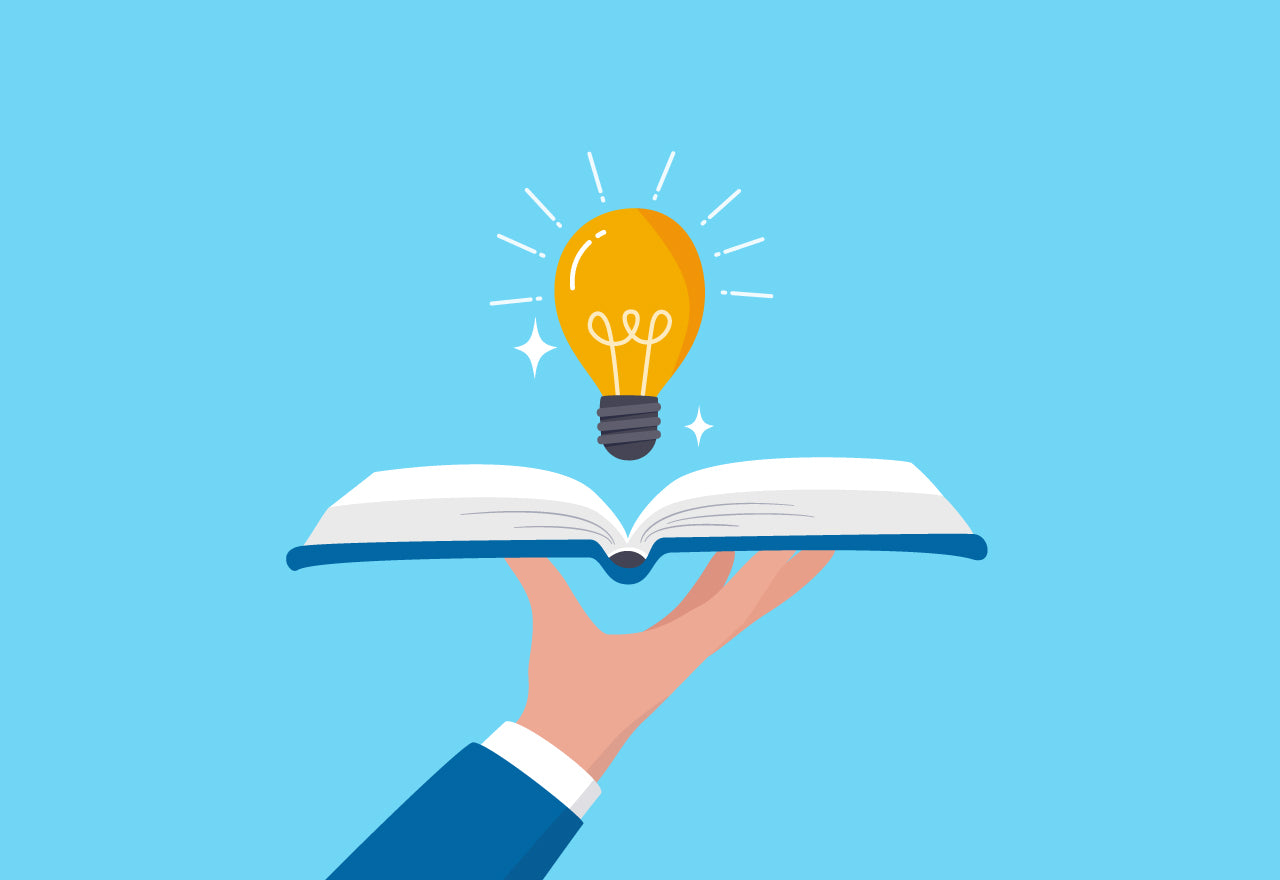"How was your day?"
A question we ask each other all the time. And more often than not, the answer is, "Busy. Very busy". In fact, most of the time, it feels wrong to suggest you were anything less than busy.
Busy is a badge of honor.
But there's a difference between busy and productive. And the trouble is, on the surface, they can look the same. A 'back-to-back' calendar full of meetings, a non-existent lunch break, consistently staying late to get the job done. We're buried in busy.
And because of this, it feels like we're doing something. We're working hard. And working hard is something to be celebrated. So, what's wrong with that?
Are you a high performer, or a workaholic?
Staying late, frantic multitasking, and soaring stress levels won't always lead to meaningful results. Most likely, it will lead to burnout. There's a difference between working hard and working smart. Workaholics are busy, high performers are productive.
According to a McKinsey study, high performers are 400% more productive than average employees. And if you're looking to recruit, adding a high performer to a team, can boost the effectiveness of other team members by 5-15%.
Which is why more and more companies are offering flexible incentives to attract and retain high performing employees. Recruitment can be costly. Agencies take between 15-30% of a new hire's first year salary. As a business, it's an outgoing you don't want to repeat.
High performing = highly sought-after.
Being a high performer opens doors and offers big benefits for the individual. With employers recognising your value, high performers have more career options, greater financial reward, and the opportunity to actually do something they love.
So, if you're feeling more frazzled-and-firefighting than productive and purpose-driven, these 5 high-performing habits will set you apart from the rest.
Skill 1: Self awareness

Self-awareness is the foundation of effective leadership. Most of us are gloriously unaware of who we really are and how we impact others. Adopting a frank and honest assessment of our own strengths and weaknesses, not only shows emotional intelligence, but also improves our relationships with those around us.
What are your strengths and weaknesses?
"My weakness? Hmm, let me think...I guess if anything, I probably work too hard..."
C'mon, this isn't an interview in the '80s - that answer is no longer valid.
This is the time to be brutally honest with yourself. Understanding your inherent strengths and weaknesses allows you to leverage what you're naturally good at, and address areas of improvement.
Draw on your previous experiences. Reflect on times when something hasn't gone well. How did you deal with that? Maybe you've received feedback from others. High performers can identify weaknesses and turn them into opportunities for development.
What drives you?
What is your 'why'?
Knowing your purpose makes it easier to focus on where you're going. Understanding motivations ensures your actions always align with your goals.
Get to know your personality.
How does your personality impact your behavior? How do you think that is seen and felt by others? Knowing these traits can help you understand how you interact with colleagues and managers. Resulting in improved team dynamics, enhanced communication, and can lead to a happier work environment.
Skill 2: Goal setting

Once you've worked out your 'why', and you know what your aim is, goal setting is key to driving focus and channeling energies efficiently. Without it, efforts can scatter and stray. High performers will always maintain focus on the overarching goal.
At the same time, high performers also have the conviction and confidence to cut out any unnecessary tasks that don't align with The Goal. They'll feel confident in not skipping that lunch break, they'll adjust that deadline if it means getting the right result. They'll switch it up. Because a high performer's main priority is moving towards The Goal, whereas a workaholic's main priority is being busy.
Goals 101: Stick to the path.
Goals can be broadly categorized into two types:
Long-term objectives.
These define our overarching vision. This is the destination. The North Star. Our purpose.
Short-term tasks.
These are the immediate actions we take towards that destination. The roadmap. The Goal may seem huge but breaking it down into smaller tasks and actionable steps puts The Goal within our grasp.
A sworn-by starting point for these smaller, incremental goals is the SMART approach:
Specific: Clear and well-defined goals provide a direct line of sight to what needs to be achieved, eliminating vagueness or ambiguity.
Measurable: Assigning a quantifiable metric or criterion to the goal allows for tracking progress and determining when the goal is achieved.
Achievable: The goal should be realistic and attainable given the available resources, skills, and time.
Relevant: The goal should align with broader objectives, values, and current priorities.
Time-Bound: Setting a deadline for achieving the goal creates a sense of urgency and commitment.
Skill 3: Focus and discipline

Distractions are everywhere. And the ability to zero-in on tasks is a game-changer. So, managing your environment and limiting disruption is key. The outcome? Enhanced productivity.
Concentration is a cornerstone of efficiency.
Eliminate distractions.
Create a dedicated workspace, turn off non-essential notifications, use apps or tools to block distracting sites and limit multitasking.
Time blocking.
Dedicating specific blocks of time to individual tasks offers numerous benefits for productivity:
Enhanced Focus: By setting specific blocks of time for each task, high performers can dedicate their undivided attention to one particular activity. Multitasking can result in not paying enough attention to any one task. By creating a designated window to achieve something, we're less likely to be distracted. Which consequently increases the quality of work for the task in hand.
Effective prioritization: Everyone is different, and there are peaks and troughs to our productivity. Some people find they're most productive in the morning, energized by sleep and a healthy morning routine. Others get a second wind in the afternoon. It's all down to our circadian rhythm and which chronotype we are. Energy levels fluctuate throughout the day, and during our energy peaks, we are most productive.
Some of us achieve more when working outside of 'normal' working hours. Time blocking allows high performers to allocate their most productive hours to their most critical tasks.
Reduced cognitive load: By having a predetermined schedule, high performers know what to tackle next. There's a comfort in knowing what's round the corner. This structured approach conserves mental energy and allows focus.
Limits procrastination: Assigning specific blocks to tasks creates a commitment mechanism. Knowing there's a set start and end time creates a sense of priority, reducing the likelihood of putting things off.
Ensures breaks and downtime: Time blocking isn't all about work; it's also about rest. High performers know the importance of recharging. Scheduled breaks enable you to maintain peak cognitive function throughout the day.
Boosts sense of accomplishment: Is there anything more satisfying than ticking off a 'to-do' list? Checking off completed time blocks provides a tangible sense of progress, boosting motivation and satisfaction.
Adopt productivity techniques
The Pomodoro Technique
This technique involves working intensively for 25 minutes on a task. A timer is set, and you work until the timer goes off. Then take a 5-minute break. This format is repeated with a longer break every 4 sessions of intensive work.
The Pomodoro Technique offers many performance boosting benefits:
Strengthens motivation: The short work intervals make tasks seem more manageable. Which makes them easier to start and increases momentum and motivation to complete them.
Prevention of burnout: Regular breaks ensure mental freshness, reducing fatigue and enhancing overall productivity.
Improves efficiency: If you're easily distracted or a habitual procrastinator, breaking down tasks into short sharp bursts makes you more accountable to yourself.
Establish routines.
We've all got our daily rituals. Do you start the day checking emails, do you have a morning stand-up with the team? Establishing a routine not only offers structure to your goals, but it's also a great way to start habit stacking.
Habit stacking is where you take an existing habit and then add a new behavior on top of it. The idea is that by pairing existing habits with new ones, you use the strength of your existing habits to establish productive new routines.
Skill 4: Healthy self-care habits

When it comes to productivity, most professionals and employers recognise the benefits of incorporating self-care habits into their daily routine. Many employers are now actively incorporating wellness practices into the workplace.
Rather than using self-care as a recovery tactic to counteract intense work, high performers incorporate it into their routines to optimize performance.
There's science behind self-care.
Sleep
The cost of poor sleep? $1,967 per employee, per year apparently.
Not only that, according to one study, employees that went without a good night's sleep were also found to have "significantly worse productivity, performance, and safety outcomes".
Sleep is crucial for optimal cognitive function. It helps reorganize and transfer memories from the hippocampus (involved in short-term memory) to the cortex (involved in long-term memory storage). Sleep improves attention, concentration, problem-solving skills, creativity, and decision-making abilities.
Exercise
Studies show that regular moderate exercise, increases the hippocampal volume in the brain. This increase shows enhanced neuroplasticity. Which reflects the brain's ability to form new connections and modify existing ones, leading to improved cognitive abilities.
Balanced diet
A healthy diet can increase the production of new neurons, a process called neurogenesis. What we eat can also affect the synaptic plasticity of the brain. Synaptic plasticity is a measure of the number of connections between neurons. The more connections there are, the better they can communicate, and the better we can learn, think, and memorize.
Mindfulness and relaxation techniques
However you start or end your day, incorporating some form of mindfulness has proven benefits for the brain.
Yoga and breathing exercises
Research shows that mindfulness practices such as yoga can affect the anatomy of the brain. The 2019 review of studies showed that physical activity combined with breathing exercises had a positive effect on the hippocampus region that's involved in learning and memory processing.
Journaling
Journaling is a great way to organize and deconstruct your thoughts. If you can process thoughts and feelings, you can acknowledge the impact they may have on performance. Journaling allows you to track progress and growth, reflect on mistakes, develop emotional intelligence, and manage stress.
Self-talk
"Have a word with yourself".
Your brain processes up to 70,000 thoughts per day. Thoughts are powerful and the impact of positive vs negative shouldn't be underestimated. Positivity breeds positivity. Many athletes use positive self-talk before competing to prepare and motivate themselves. Positive self-talk is supportive and affirming. You're in control, confident and ready to take on the challenge.
Skill 5: Continuous learning and development

Learning is a lifelong process. It fuels personal and professional development. Continual learning and development have profound cognitive and performance related benefits:
Brain Plasticity: Continuous learning strengthens the brain's neuroplasticity, its ability to reorganize and form new neural connections throughout life. This adaptability helps the brain stay resilient.
Dopamine Release: Learning can trigger the release of dopamine, a neurotransmitter associated with pleasure, motivation, and reward. This creates a positive feedback loop, where learning feels rewarding, which motivates further learning.
Improved Memory: Regular mental stimulation improves memory retention and recall.
Enhanced Problem-Solving: Exposure to diverse subjects and challenges refines our ability to think critically and devise innovative solutions.
Increased Creativity: Engaging with new information can spark creativity and inspire different ways of thinking.
Better Decision Making: Continuous learning provides a broader knowledge base, leading to informed and balanced decisions.
Final thoughts
High performer or workaholic?
Most of us will admit to being a mix of the two. In terms of productivity, it's a myth that working as hard as possible guarantees greatness. Working hard is important, but being a workaholic doesn't automatically crown you a high performer. And while in the past, we might've associated high performers with high stress, today's understanding is different. The reality is, we can all take a few tips to tweak our work styles for better outcomes.
Consistency is key. Focus is your friend. Remember, it's about working smarter, not harder.




